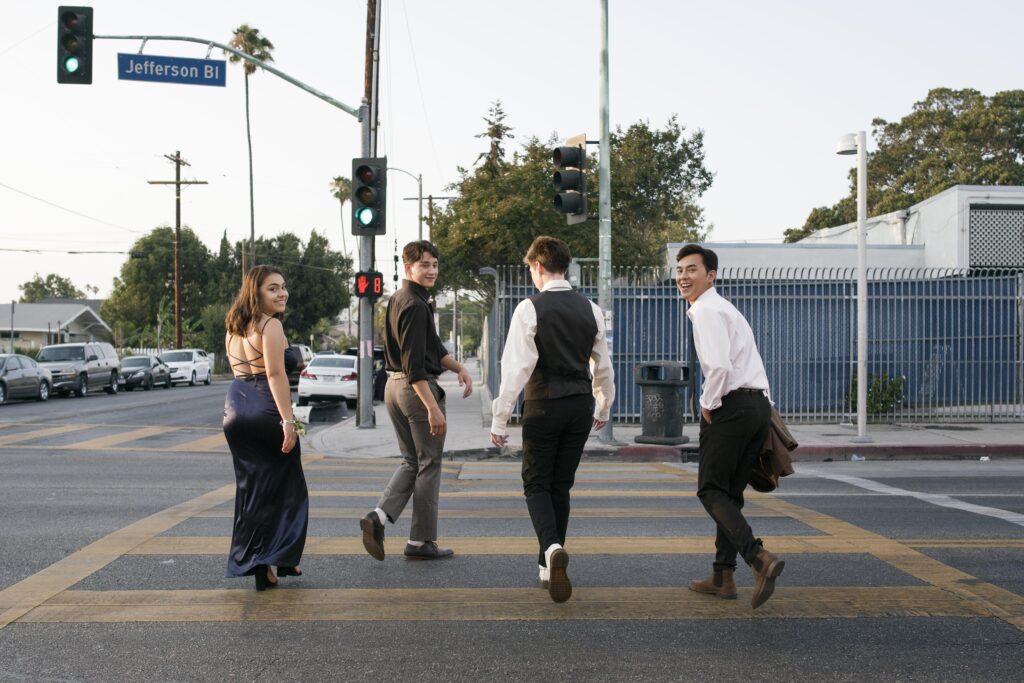Most people think you have to be the one committing a crime to get charged. But in California, even if you didn’t actually pull the trigger, take the money, or break into the house, you can still face serious criminal charges just for helping someone else. It’s called aiding and abetting, and you could find yourself facing serious repercussions, even if you had very little to do with the crime itself.
The law treats accomplices almost the same as the person who committed the actual crime. That means if you encouraged, assisted, or otherwise helped someone commit an offense, you could end up with the same penalties. Let’s break down exactly what aiding and abetting means, how prosecutors prove it, and what defenses may be available.
What Does “Aiding and Abetting” Mean?
At its core, aiding and abetting means helping someone else commit a crime. There’s no requirement for you to even be at the scene in some cases. You don’t have to be the mastermind or even directly involved in carrying out the crime itself. Just providing assistance, encouragement, or support can be enough for prosecutors to press charges.
Under California Penal Code § 31, anyone who “aids, abets, advises, or encourages” another person in committing a crime can be held criminally liable. The idea is that crime doesn’t happen in a vacuum. If you knowingly helped, the law sees you as part of the crime.
Aiding vs. Abetting: What’s the Difference?
The phrase “aiding and abetting” is often used together, but the two terms highlight slightly different actions:
- Aiding is about providing help or assistance. For example, driving the getaway car or letting someone borrow tools that are then used for a burglary.
- Abetting focuses on encouragement or instigation. For instance, urging someone to go through with a robbery or giving them the confidence to commit the act.
In practice, there’s no real legal distinction. Both aiding and abetting make you criminally liable for the crime. Prosecutors don’t have to prove which one you did; showing that you intentionally helped in some meaningful way is enough.
Common Examples of Aiding and Abetting
A wide range of actions can fall under the heading of aiding and abetting. It can be eye-opening to see just how broad this law is. Here are a few real-world examples:
- Acting as the getaway driver while someone robs a store.
- Serving as a lookout during a burglary.
- Providing weapons, money, or tools used in the commission of a crime (but usually not if you didn’t know that they would be used in that way).
- Encouraging someone at the scene with words like, “Do it, don’t chicken out.”
- Helping hide evidence or sheltering the suspect immediately after the crime.
Even actions that seem minor in the moment can expose you to full criminal liability.
What Prosecutors Must Prove for a Conviction
Not every act of helping someone who commits a crime will qualify as aiding and abetting. To secure a conviction, prosecutors generally have to show a few things, including:
- A crime was committed by someone else.
- You knew the other person intended to commit a crime.
- You intentionally aided, encouraged, or facilitated the crime before or during its commission.
- Your actions actually helped the crime succeed in some way.
Notice that knowledge and intent are pretty important here. Just being present at the scene of a crime isn’t enough. For example, if you’re standing nearby while a friend steals something, but you had no idea it was going to happen, you’re not guilty of aiding and abetting.
Likewise, loaning someone a crowbar that’s later used to break into a building isn’t aiding and abetting if you didn’t know that the person intended to use the tool to break in. That said, the prosecutors may try to prove that you knew about the crime even if you didn’t.
Penalties for Aiding and Abetting in California
Here’s the part that surprises most people: the penalties for aiding and abetting are usually the same as if you committed the crime yourself.
That means if you drove the getaway car in a robbery, you could be charged with robbery. If you encouraged a friend to commit assault, you could face assault charges.
The actual punishment depends on the underlying crime:
- Misdemeanors may carry fines, probation, and up to a year in county jail.
- Felonies can result in years in state prison, hefty fines, and a permanent criminal record.
In some cases, the consequences can follow you for life, including loss of professional licenses, having trouble finding work, or immigration consequences for non-citizens.
Defenses Against Aiding and Abetting Charges
Just because you’re accused of aiding and abetting doesn’t mean you’ll be convicted. An experienced criminal defense attorney can often challenge the prosecution’s case in several ways, including:
- Lack of intent – If you didn’t know a crime was going to happen, you can’t be guilty of aiding and abetting.
- Mere presence – Just being at the scene isn’t enough. Prosecutors have to show that you actively helped.
- Withdrawal – If you tried to stop helping or withdrew before the crime occurred, that can be a defense.
- Insufficient evidence – Many cases rely heavily on less-than-perfect eyewitness testimony or circumstantial evidence.
Every situation is unique, which is why having experienced legal representation matters.
Talk to a Defense Lawyer About Aiding and Abetting Charges
Being charged with aiding and abetting can feel deeply unfair, especially if you didn’t realize how serious the consequences could be. California law doesn’t take these charges lightly, and the penalties can be just as harsh as for the main offender.
The good news is that you don’t have to face it alone. A knowledgeable criminal defense attorney can review the facts, build a strong defense, and fight for the best possible outcome in your case.
If you’ve been accused of aiding and abetting, contact defense attorney David L. Faulkner today to protect your rights and your future.









